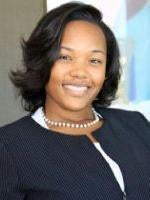In February 2019, the New York Commission on Human Rights (the “Commission”) issued guidance regarding employment discrimination based upon natural hair or hairstyles. Specifically, the Commission announced its position that “grooming or appearance policies that ban, limit, or otherwise restrict natural hair or hairstyles associated with Black people generally violate the New York Commission on Human Rights Law’s (“NYCHRL”) anti-discrimination provisions.” The Commission further stated that harassment based on aspects of an employee’s appearance associated with his/her race is also prohibited.
According to the Commission, Black hairstyles are a protected racial characteristic under the NYCHRL “because they are an inherent part of Black identity” and because “there is a strong, commonly-known racial association between Black people and hair styled into twists, braids, cornrows, Afros, Bantu knots, fades, and/or locs.” Pursuant to the Commission’s guidance, examples of policies or practices that may violate the NYCHRL include:
-
Prohibiting twists, locs, braids, cornrows, Afros, Bontu knots, or fades;
-
Requiring employees to alter the state of their hair, e.g., through the use of chemicals or heat, to adhere to company appearance standards;
-
Limiting the number of inches hair can grow from the scalp, thereby limiting Afros;
-
Requiring that only Black employees obtain supervisory approval before changing hairstyles;
-
Informing only Black employee that they risk losing their jobs if they do not change or alter their hair;
-
Prohibiting Black employees with locs from positions that are customer facing;
-
Refusing to hire Black applicants with cornrows because the style is contrary to the employer’s “image”;
-
Requiring Black employees to hide their hairstyle under hats or visors; and
-
Restricting natural hair styles or styles associated with Black people to promote a cultural image, appeal to a customer, or “under [a] speculative health and safety concern.”
Though the guidance focuses largely on hairstyles closely associated with Black people, the Commission further advised that policies that implicate religious groups or other protected classes may also violate the NYCHRL. For example, policies that prohibit employees from wearing “uncut hair or wearing untrimmed beards. . . may impact Rastafarians, Native Americans, Sikhs, Muslims, Jews, and other religious or cultural minorities.”
Importantly, the guidance does not state that employers cannot have policies that require a neat and orderly appearance. In addition, employers may impose hair bans or restrictions because of a legitimate health and safety concern, but only after other alternatives, such as hair nets, head coverings, and hair ties, are considered and deemed unworkable.
The Commission has announced its intention to investigate claims of racial discrimination based on this guidance. Thus, employers with four or more employees in New York City would do well to evaluate any current grooming and/or appearance policies to assure compliance and minimize legal risk.




 />i
/>i

